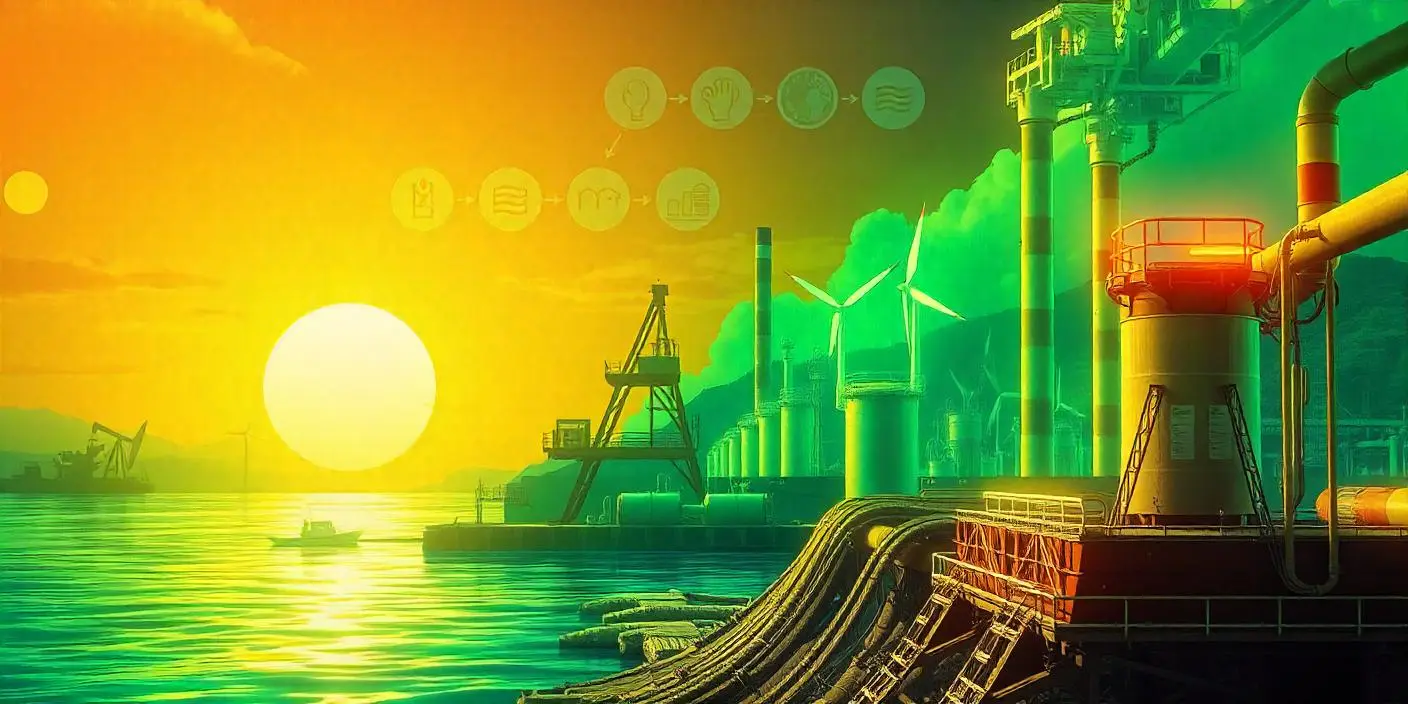Decarbonization Strategies in the Oil & Gas Industry

Introduction
The oil and gas industry is a significant contributor to global greenhouse gas (GHG) emissions. As climate change concerns intensify and regulatory pressures increase, the sector is actively exploring decarbonization strategies to reduce its carbon footprint while maintaining energy security. This article examines key decarbonization strategies being adopted in the oil and gas industry and their potential impact on the future of energy production.
Key Drivers of Decarbonization in the Oil & Gas Industry
Several factors are accelerating the push for decarbonization in the oil and gas sector:
- Climate Change Commitments – Global agreements like the Paris Accord set emission reduction targets for industries worldwide.
- Regulatory and Policy Pressures – Governments are implementing carbon pricing, emissions caps, and sustainability mandates.
- Investor and Stakeholder Demands – ESG (Environmental, Social, and Governance) considerations are influencing investment decisions.
- Technological Advancements – Innovations in carbon capture, hydrogen production, and renewable integration support decarbonization efforts.
- Market Competition and Energy Transition – The shift towards renewable energy sources is reshaping the global energy landscape.
Major Decarbonization Strategies in the Oil & Gas Industry
To address these challenges, the industry is implementing several key decarbonization strategies:
1. Carbon Capture, Utilization, and Storage (CCUS)
- Captures CO₂ emissions from production facilities and stores them underground or repurposes them for industrial applications.
- Major oil companies are investing in large-scale CCUS projects to offset emissions.
- Advances in direct air capture (DAC) technology enhance efficiency.
2. Electrification of Operations
- Transitioning from fossil-fuel-powered equipment to renewable electricity (solar, wind) reduces emissions.
- Offshore platforms are integrating renewable energy to power drilling and processing.
3. Hydrogen Production and Utilization
- Oil companies are exploring blue hydrogen (produced from natural gas with CCUS) and green hydrogen (produced from electrolysis using renewable energy).
- Hydrogen can replace natural gas in refining processes and be used in fuel cells for power generation.
4. Methane Emission Reduction
- Implementing leak detection and repair (LDAR) programs to minimize methane emissions from pipelines and drilling sites.
- Deploying advanced sensors and satellite monitoring to track emissions in real time.
5. Biofuels and Sustainable Fuel Alternatives
- Refineries are investing in bio-based feedstocks like renewable diesel and synthetic fuels.
- Expansion of co-processing technology, where bio-based materials are blended with crude oil in existing refineries.
6. Energy Efficiency and Digitalization
- AI and machine learning optimize energy use and reduce waste in upstream and downstream operations.
- Advanced process control (APC) systems enhance refinery efficiency and lower emissions.
7. Carbon Offsetting and Nature-Based Solutions
- Investments in reforestation, soil carbon sequestration, and ocean-based carbon removal projects.
- Purchasing carbon credits to achieve net-zero emissions goals.
Challenges and Barriers to Decarbonization
Despite the progress, several challenges remain:
- High Capital Costs – Implementing decarbonization strategies requires significant investment.
- Technological Maturity – Some technologies, like DAC and green hydrogen, are still in the early stages of scalability.
- Market and Policy Uncertainty – Volatility in carbon pricing and regulatory frameworks impacts long-term planning.
- Infrastructure Limitations – Transitioning to new energy systems requires updates to existing infrastructure.
Future Outlook
The future of decarbonization in the oil and gas industry will be shaped by:
- Stronger Policy Frameworks – Governments will likely impose stricter emissions regulations and incentives for low-carbon technologies.
- Industry Collaboration – Partnerships between oil companies, technology firms, and governments will drive innovation.
- Integration with Renewable Energy – Increased hybrid models combining fossil fuels with renewable power sources.
- Advancements in Carbon Markets – Growth in global carbon trading mechanisms will influence industry strategies.
Conclusion
Decarbonization is no longer optional for the oil and gas industry; it is a necessity for long-term sustainability and competitiveness. Through strategies such as CCUS, electrification, hydrogen utilization, and methane reduction, the industry is making significant strides toward reducing its environmental impact. As technology evolves and regulatory frameworks tighten, oil and gas companies must continue innovating to align with global climate goals while ensuring energy security and economic viability.
